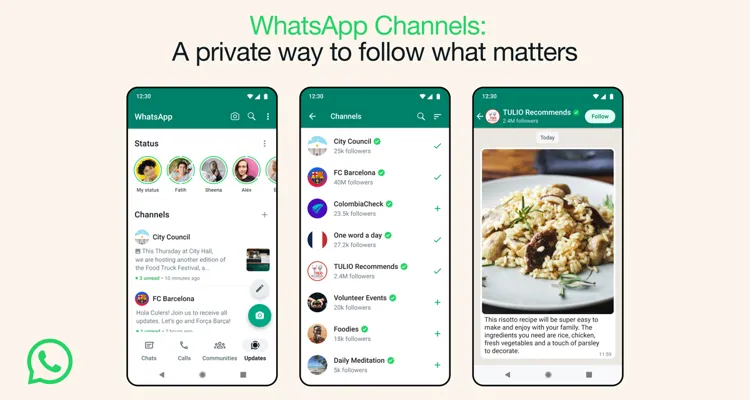WhatsApp is adding a new feature called Channels, giving people and organizations a way to send updates.
“We’re building Channels in a new tab called Updates—where you’ll find Status and channels you choose to follow—separate from chats with family, friends, and communities,” the press release announcing the new feature reads. Channels are one-way broadcast tools for admins to send text, photos, videos, stickers, and polls to those who follow the channel.
WhatsApp is also building a searchable directory of channels so users can follow their favorite sports team, get updates from local officials, and more. Invites from other members of the channel offer another unique way to join the messaging. So what are Channels and how do they work?
It’s intended to be a private broadcast service for anyone who has something to tell everyone. As a channel admin, your phone number and profile photo won’t be shown to followers. And following a Channel doesn’t mean the administrators of that channel know your phone number. WhatsApp will store Channel history for 30 days before it gets deleted, so it’s a great way to share timely updates to users. Finally, WhatsApp says Channel admin owners will be able to opt-in to the searchable directory.
The service is launching in Colombia and Singapore now as a limited test, but will likely roll out to the rest of the WhatsApp community in the coming months. WhatsApp is building the feature with business in mind with a focus on using its expanded payment services and the ability to promote channels in the directory to increase awareness. The move comes as WhatsApp parent company Meta moves to capitalize on the chaos surrounding Elon Musk’s takeover of Twitter.
Meta is working on a Twitter competitor that is likely releasing this summer. The app is based on Instagram and will integrate with ActivityPub, a decentralized social media protocol that is popping up (Mastodon & Lemmy). Meta Chief Product Officer Chris Cox calls this effort the company’s “response to Twitter.”

